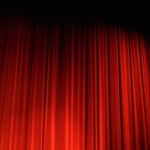"When we inhabit the present, as we do, we can move into the past and imagine—imagine what we are going to hear, and produce something that we’ve never heard."
John Cage
A composer knows as little as anyone else where the substance of his music comes from.
Edgard Varese (1959)
“I was obliged to be industrious. Whoever is equally industrious will succeed . . . equally well.”
Johann Sebastian Bach
"It occurred to me by intuition, and music was the driving force behind that intuition. My discovery was the result of musical perception." (When asked about his theory of relativity) - Albert Einstein
"If you cannot please all by your art or your work, Satisfy the few: to please many is bad"
J. S. Bach
"The effects of good music are not just because it's new; on the contrary music strikes us more the more familiar we are with it." Johann Wolfgang Von Goethe
"The best music always results from ecstasies of logic."
Alban Berg
"What is best in music is not to be found in the notes."
Gustav Mahler
“A record is a concert without halls and a museum whose curator is the owner.”
Glen Gould
Erich Neumann, Art and the Creative Unconscious
Princeton University Press, 1959, p. 102 ff.:
But whether the artist grows slowly away from the tradition of his time or passes over it at one bound, and brings the new element the epoch lacked, ultimately, if he does not stop at the stage of representation of the cultural canon—and no truly great artist has ever done so—he finds himself alone. He is alone regardless of whether he is worshiped as an Olympian, whether he is an organist respected in a small circle, or whether he ends in deafness, poverty, or madness.
The struggle of these great men with the powers inside them and the times outside them seems to result in a statement which transcends the artistic and symbolic reality of their creative life. In music, painting, sculpture, and poetry they penetrate to the archetypal transcendance which is the inner life of the world. What speaks to us from a self-portrait of the aged Rembrandt, from the end of Faust, Part II, from Shakespeare's last plays or Titian's late paintings, from The Art of Fugue or a late Beethoven quartet, is a strange transfiguration, a break-through into the realm of essence. ...
In these works of man a numinous world is manifested in which the polarity of outward and inward—nature and art—seems to be resolved. Their secret alchemy achieves a synthesis of the numinosum at the heart of nature and psyche.
These aged masters seem to have attained the image and likeness of a primal creative force, prior to the world and outside the world, which, though split from the very beginning into the polarity of nature and psyche, is in essence one undivided whole.










